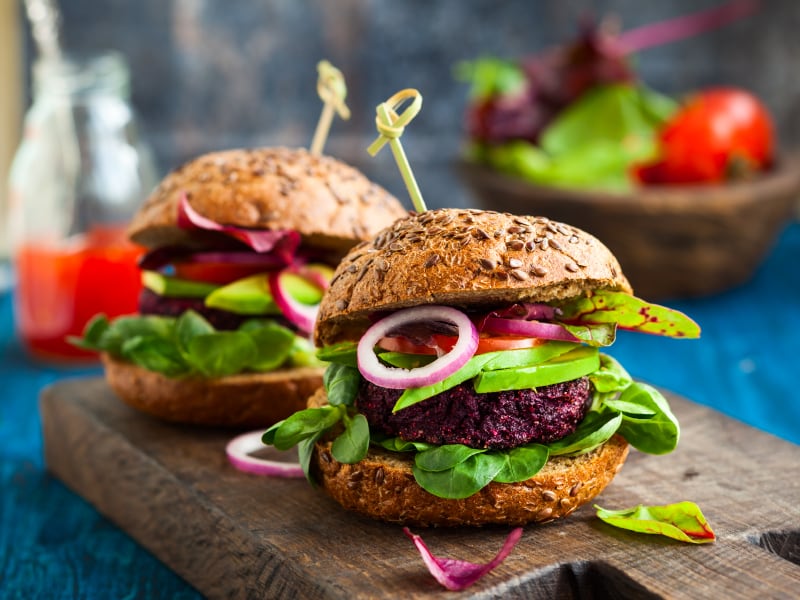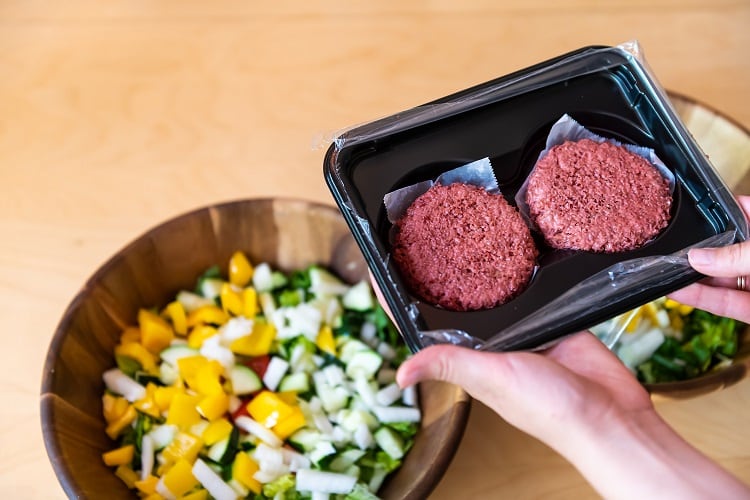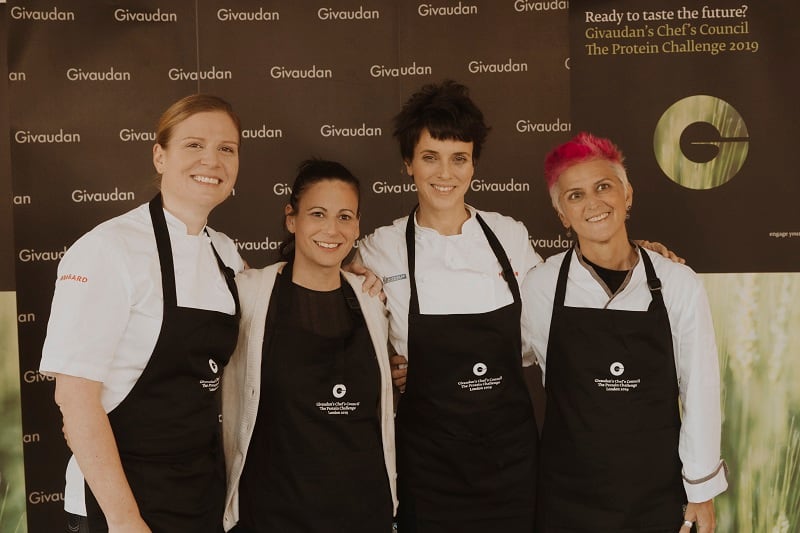FST manufactures sustainable, natural and fully functional vegetable fibres and oil meal flours through an innovative natural drying and milling process. All of the company’s ingredients are made from food production side-streams – primarily from the juicing and edible oil industries – which would otherwise be lost to human consumption.
That these by-products would either be disposed of or used as animal feed is a ‘“dreadful thought for a product that actually is good food until the moment it leaves the stainless steel of the production line” co-founder and technical director Andreas Herzig stressed.
FST's ingredients hit a number of important touch points for the food sector: they are natural, plant-based and sustainable.
According to co-founder and sales director Erik Linke, sustainability is more of a central concern for food makers today than with FST was first founded in 2012.
"We have marketed our sustainable ingredients since 2012. The first 3-4 years it was very bumpy on sustainability," he told FoodNavigator, explaining that food makers' definitions of sustainability often focused on issues like the use of renewable energy and did not extend to the sustainability of the ingredients they sourced. "In about 2016 that sustainability idea became much broader. The next thing we are looking for is manufacturers communicate to consumer on pack that an ingredient is sustainable."
Linke said the development of a burger formulation was a natural progression for the supplier. “Making sustainable and natural vegan ingredients from side-streams, it was only a question of time until people would ask us for recipes for finished items like burgers,” Linke noted.
“It is always difficult for an ingredients company to move into finished products. But when the number of requests for formulations became overwhelming, we put our thinking caps on to see how we could come up with something that would be along our lines of sustainability and naturalness and still good enough to find its way into the market.”
Technical director Herzig got to work, using mainly FST’s own ingredients like carrot fibre, beetroot fibre, flaxseed flour and pumpkin seed flour – all by-products of the vegetable juice or edible oil industry.
Not another ‘meat copycat’
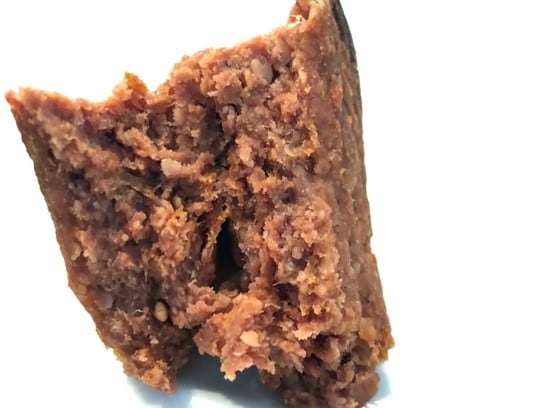
FST is distancing itself from many of the other big-name meat analogues on the market, such as Beyond Meat or Impossible Foods. “The basic idea behind it is a totally different one to the likes of Impossible, Beyond or others.”
A key differentiator is that, while companies like Beyond and Impossible have come under scrutiny for their lengthy ingredients lists, the NaSu Burger is a clean label formulation. The NaSu Burger is free of e-numbers, soy-free, wheat and gluten free and, ‘unlike many vegan burger offerings’, consists of ingredients ‘exclusively made from food’, according to FST.
Linke continued: "In this whole vegan debate you have raw materials like cellulose, or bamboo fibre... but they are actually not being made from food. Don't get me wrong - they have been used in the food industry for a long time - but we see our customer base beginning to ask can you guarantee that your raw materials will be made from food?"
Indeed, the name NaSu is a combination of the words ‘natural’ and ‘sustainable’ to highlight two of the product's key selling points. In this respect, FST found that giving a name to the concept yet to be developed was the easiest thing.
The bid to set the burger apart from the likes of Beyond and Impossible ‘took some more thinking’. Until FST hit on a realisation: people looking for vegan products do not necessarily want a copycat meat.
“The cornerstone of Beyond and Impossible is that they are actually trying to copy meat,” explained Herzig. “But when we spoke to clients and consumers they actually very often wondered why people who wanted to eat something vegan actually would want to have a copy of meat.”
NaSu Burger Nutrition Facts per 100g
Ingredients: Water, FST Blend (Linseed Flour, Carrot Fibre, Beetroot Fibre, Pumpkinseed Protein, Millet, Salt, Pepper,Tomato, Basil, Onion), Vegetable Oil
Nutritional Values: Fat: 10.32g, Sodium 0.83g, Carbohydrates 16.73g, Dietary Fibre 9.66g, Sugars 3.51g, Protein 9.68g
Indeed, FST said this concept was validated by its own market research and feedback from its customers across the 32 markets in which it operates.
FST found that vegans were open to products that were ‘clearly different to meat’. As for flexitarians, the FST market studies found that if they want to eat meat, they will simply do so. But when a flexitarian wants to eat something vegan, they will ‘happily venture away from meat’. So according to FST’s insight, both consumer groups are not necessarily after a copy of meat.
In terms of nutritional profile, Linke noted that the NuSa Burger does contain less protein than some of the other vegan burgers on the market. However, he does not see that as an issue.
Route-to-market determined development
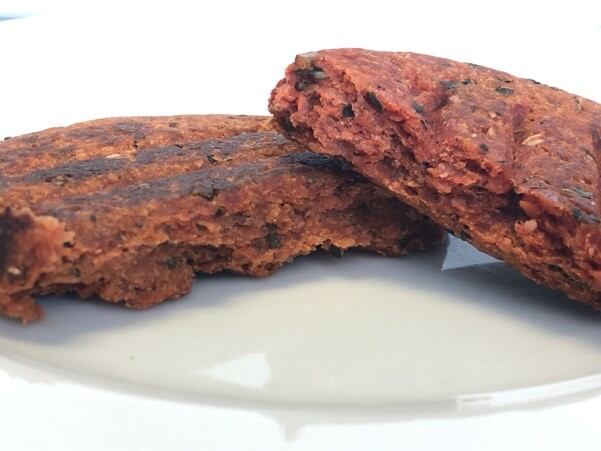
Having decided that it was not necessary to recreate the full experience of eating meat to gain consumer acceptance, FST then looked at the needs of its future customers – food makers.
In particular, the company studied the production models of legacy meat manufacturers, many of whom are looking to diversify their product portfolios in response to the vegan trend. Linke suggested that this is likely to be the 'main market' for the NaSu Burger.
“There are loads of meat patty makers out there who have invested heavily into their machines. And each vegan burger eaten is one burger less that comes off their machines,” Linke explained.
Developing a product concept that could run on these existing machines could therefore meet an emerging need in the industry.
Flexibility is also an important consideration for food industry customers. “Not all those people want to sell the same burger. The concept of the NaSu Burger therefore needed to be flexible enough to allow for variations in the flavour as well as for changes to the texture, the bite of the product” explained Herzig.
Given that FST’s ingredients are dry powders, a dry blend was the obvious solution.
“A dry blend is easy to handle, ship and store. Avoiding shipping around lots of water is also quite sustainable” Herzig noted.
Versatility a ‘huge advantage’ for meat-manufacturers
The result, the NaSu Burger, is a dry blend concept built around the texture component of FST’s natural and sustainable fibres and flours. Millet was added for bulk and bite, chosen because it is one of the most sustainable grains.
Using this blend component as a base, flavour and texture can be added depending on customer preferences. These flavour blends can either be supplied by FST itself or in fact be sourced by the customer.
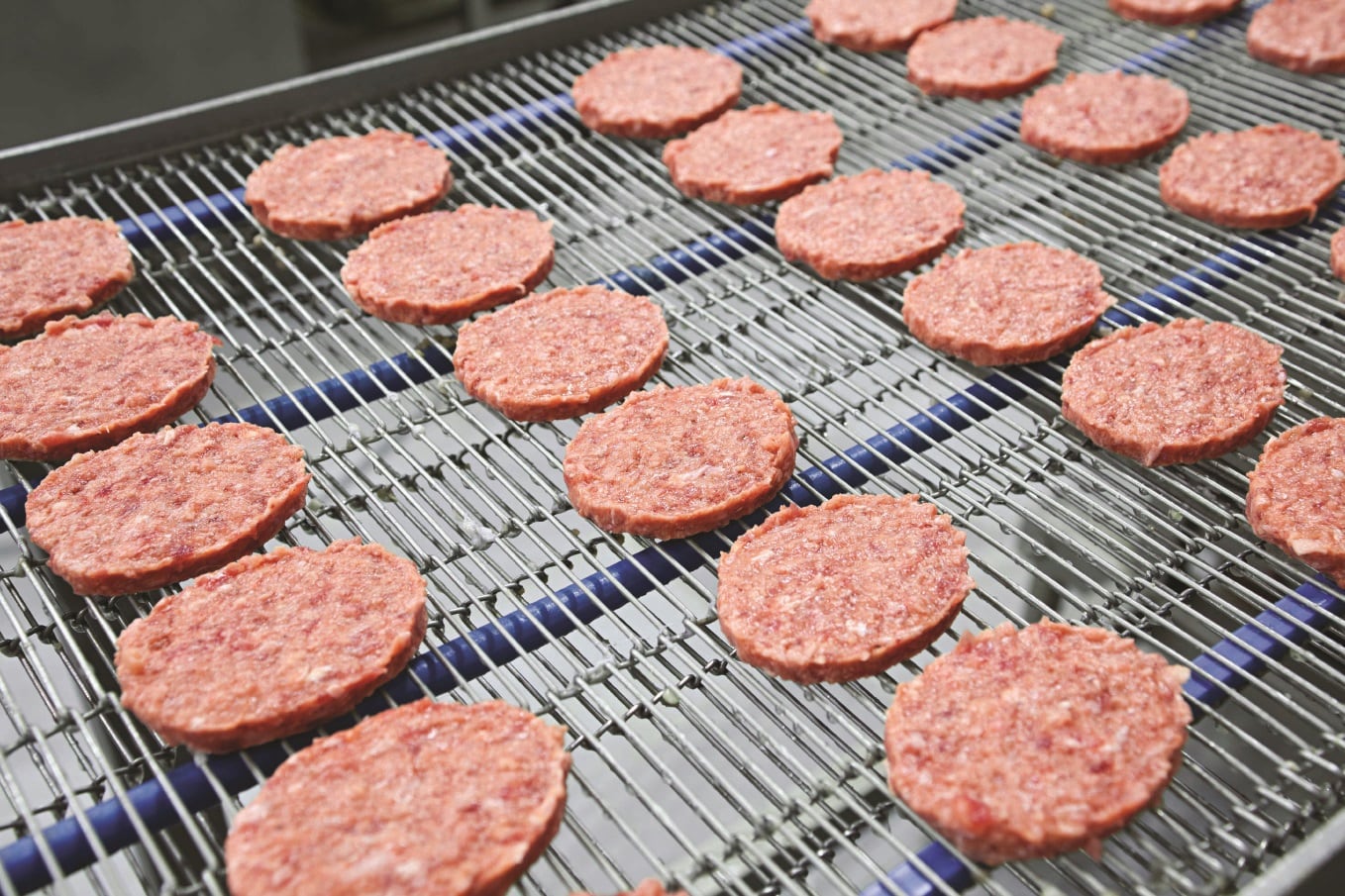
The same applies for the addition of texturised vegetable proteins if a more meat-like product is desired. “Some of our customers want the patty to have a similar bite as meat. We do not think this is necessary and therefore we have not incorporated TVP into our blend. But if a customer wants to be closer to meat, they can add TVP if they wish” Herzig elaborated.
Being so versatile seems to be a huge advantage for the NaSu concept, said Linke.
“Production is straightforward: Add water and vegetable oil to the blend, mix and form a patty. You can chill the patty, you can freeze it, it is easy to make and easy to store. And you just need to make as much as you need for the next week. Run vegan on Mondays, after the weekend clean-down, then switch to meat patties again."
Indeed, FST believes this flexibility will prove particularly important for meat makers wanting to run vegan patties on their machines rather than filling the freezers with third party products. “Because it is so easy to make up, we have already been asked by retailers about the product. They are looking at packing it into sachets and marketing it that way,” Herzig revealed.
FST offers The NaSu Burger as a complete blend or as a texture compound consisting mainly of FST’s own sustainable and natural vegetable fibres and oil meal flours.
The company will be profiling its latest innovation, alongside existing products such as carrot fibre, beetroot fibre, kale fibre, linseed flours and pumpkin seed proteins, at upcoming tradeshow Food Ingredients Europe. FiE will take place in Paris next month.

